Strictly Personal
Help! There’s a dangerous, secret plot to save the EAC from imminent death, By Charles Onyango-Obbo
Published
7 months agoon

In an interview with NTV Keny, at the start of the week, Rwanda’s President Paul Kagame painted a rather bleak picture of the East African Community (EAC).
He suggested the saga of the East African Regional Force (EACRF) to the troubled eastern Democratic Republic of Congo, which was kicked out ignominiously by a disgruntled government in Kinshasa, was a low point. He said to date, no one has even bothered to formally brief the EAC heads of state on what happened.
This debacle, coming on the back of numerous ugly trade and diplomatic spats, despite the latest expansion to include Somalia as the eighth member of the bloc, does not inspire a lot of confidence about the EAC’s future. In Kampala, Uganda President Yoweri Museveni, once the choir leader of the EAC, no longer gets so excited about it.
Good East Africans are looking on with alarm. A dyed-in-the-wool pan-East-African Ugandan lawyer wrote to say he has conceived of a plan that will get regional leaders to fall into each other’s arms and turbo charge unification.
He plans to arouse patriotic East Africans to establish a radical revolutionary front called the East African Liberation and Unification Front (Ealuf) to work regionally to pressure the governments in Nairobi, Dodoma, Kampala, Kigali, Kinshasa, Juba, Gitega (the newish Burundi political capital), and Mogadishu with an alternative political structure. Ealuf will look to create an East African Peoples Republic.
It will have an agenda to abolish all restrictions on travel across borders, have zero tax rates for regional trade, create a regional digital currency, and create a roaring common market, among other things.
He believes the leaders will come together at 6G speed, and work hand in hand to stop the ideas espoused by Ealuf from gaining political traction, with its grand vision of a truly meaningful borderless East Africa. In the process, they will move forward with integration to Ealuf.
It is likely too, that they will not come together to collectively save their jobs. They might form an East African Emergency Unity Summit (EAEUS), to fight back. President Museveni might want to chair it as the region’s “elder statesman”, having been in power for nearly 40 years.
However, some leaders would oppose him, saying he has eaten for long at the top, and should let a younger leader, “new blood”, like Burundi President Évariste Ndayishimiye, or Kenya’s William Ruto, lead it. They will accuse him of scheming to install himself as the East African supreme leader, and clinging on to power until one of his grandchildren was ready to take over from him.
Museveni will push back, citing their inexperience. Some will demand that South Sudan President Salva Kiir pay all the arrears his country owes the EAC before it gets full rights in EAEUS. DRC President Felix Tshisekedi will push to exclude President Kagame from taking a seat until Rwanda stops its support for M23 rebels. President Kagame will tell him to go and swim with crocodiles in the Congo River.
Somalia President Hassan Sheikh Mohamud will complain that the other leaders are disrespecting him because he is an EAC newbie, and until they change their attitude, he is staying in Mogadishu.
As they squabble, some groups might see an opportunity. Al Shabaab might reform, disavow violence, elect new moderate leaders and seek to ally with the regional integration activists as Ealuf-Horn of Africa.
In M23 allies with some of the 120 rebel groups and form Ealuf-Congo Basin. A bid by externally based Ugandan groups like a rump Lord’s Resistance Army emerging from the forests of the Central African Republic, and the Allied Democratic Forces in the eastern DRC is rejected, because they have failed to demonstrate good faith credentials.
Meanwhile, Ealuf is spreading like wildfire. Large numbers of Ealuf are reported to have hired boats near Entebbe in Uganda, and Mwanza in Tanzania sailing fast on Lake Victoria and converging on Kisumu, where local integrationist forces have mobilised and turned the city into a hotbed of East African unification. In DRC, bands are composing new songs praising the new people’s unification efforts. Young people are organising to link their hands along the half of the 770-kilometre Kenya-Tanzania.
All over East Africa, there are reports of high school boys and girls disappearing in large numbers to join Ealuf cadre training camps.
Traders are staging solidarity rallies and vowing to divert the taxes they pay to states to Ealuf, and stories of market women all over the region raising money and sending food to the heroic mobilisers are spreading far and wide.
International comrades from the Caribbean, Latin America, and Asia are arriving in large numbers in East Africa and joining. Word leaks that some of the EAC presidents are sending out feelers, seeking to meet with Ealuf to cut deals. There are rumours that they are paying some Ealuf leaders big money to defect. The hardliners in Ealuf reject the olive branches, and there is some division in the ranks and a witch hunt for the “traitors,” who are eating money from the presidents.
Ealuf recovers and marches on. EAEUS reaches out with an official offer to sit down and dialogue with Ealuf about the formation of an East African Amalgamation. Whether they stick together or get divided, the leaders lose. But Ealuf has only won the first round. This is not over by any means.
Charles Onyango-Obbo is a journalist, writer, and curator of the “Wall of Great Africans”. Twitter@cobbo3
You may like
-


African Union must ensure Sudan civilians are protected, By Joyce Banda
-


Economic policies must be local, By Lekan Sote
-


Dangote Refinery: A timely win for industrialisation, By Abiodun Alade
-


Mpox crisis: We need an equity-driven pandemic treaty, By Magda Robalo
-


Olympics had free lessons for African leaders, By Tee Nugugi
-
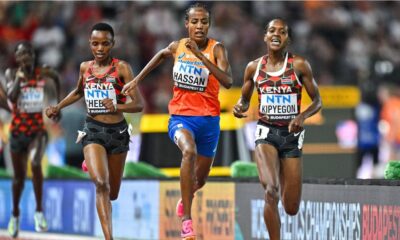

Athletes bring gold, economists bring debts, botched projects, By Joachim Buwembo
Strictly Personal
African Union must ensure Sudan civilians are protected, By Joyce Banda
Published
22 hours agoon
October 25, 2024
The war in Sudan presents the world – and Africa – with a test. This far, we have scored miserably. The international community has failed the people of Sudan. Collectively, we have chosen to systematically ignore and sacrifice the Sudanese people’s suffering in preference of our interests.
For 18 months, the Rapid Support Forces (RSF) and the Sudanese Armed Forces (SAF) have fought a pitiless conflict that has killed thousands, displaced millions, and triggered the world’s largest hunger crisis.
Crimes against humanity and war crimes have been committed by both parties to the conflict. Sexual and gender-based violence are at epidemic levels. The RSF has perpetrated a wave of ethnically motivated violence in Darfur. Starvation has been used as a weapon of war: The SAF has carried out airstrikes that deliberately target civilians and civilian infrastructure.
The plight of children is of deep concern to me. They have been killed, maimed, and forced to serve as soldiers. More than 14 million have been displaced, the world’s largest displacement of children. Millions more haven’t gone to school since the fighting broke out. Girls are at the highest risk of child marriage and gender-based violence. We are looking at a child protection crisis of frightful proportions.
In many of my international engagements, the women of Sudan have raised their concerns about the world’s non-commitment to bring about peace in Sudan.
I write with a simple message. We cannot delay any longer. The suffering cannot be allowed to continue or to become a secondary concern to the frustrating search for a political solution between the belligerents. The international community must come together and adopt urgent measures to protect Sudanese civilians.
Last month, the UN’s Independent International Fact-Finding Mission for Sudan released a report that described a horrific range of crimes committed by the RSF and SAF. The report makes for chilling reading. The UN investigators concluded that the gravity of its findings required a concerted plan to safeguard the lives of Sudanese people in the line of fire.
“Given the failure of the warring parties to spare civilians, an independent and impartial force with a mandate to safeguard civilians must be deployed without delay,” said Mohamed Chande Othman, chair of the Fact-Finding Mission and former Chief Justice of Tanzania.
We must respond to this call with urgency.
A special responsibility resides with the African Union, in particular the AU Commission, which received a request on June 21 from the AU Peace and Security Council (PSC) “to investigate and make recommendations to the PSC on practical measures to be undertaken for the protection of civilians.”
So far, we have heard nothing.
The time is now for the AU to act boldly and swiftly, even in the absence of a ceasefire, to advance robust civilian protection measures.
A physical protective presence, even one with a limited mandate, must be proposed, in line with the recommendation of the UN Fact-Finding Mission. The AU should press the parties to the conflict, particularly the Sudanese government, to invite the protective mission to enter Sudan to do its work free from interference.
The AU can recommend that the protection mission adopt targeted strategies operations, demarcated safe zones, and humanitarian corridors – to protect civilians and ensure safe, unhindered, and adequate access to humanitarian aid.
The protection mission mandate can include data gathering, monitoring, and early warning systems. It can play a role in ending the telecom blackout that has been a troubling feature of the war. The mission can support community-led efforts for self-protection, working closely with Sudan’s inspiring mutual-aid network of Emergency Response Rooms. It can engage and support localised peace efforts, contributing to community-level ceasefire and peacebuilding work.
I do not pretend that establishing a protection mission in Sudan will be easy. But the scale of Sudan’s crisis, the intransigence of the warring parties, and the clear and consistent demands from Sudanese civilians and civil society demand that we take action.
Many will be dismissive. It is true that numerous bureaucratic, institutional, and political obstacles stand in our way. But we must not be deterred.
Will we stand by as Sudan suffers mass atrocities, disease, famine, rape, mass displacement, and societal disintegration? Will we watch as the crisis in Africa’s third largest country spills outside of its borders and sets back the entire region?
Africa and the world have been given a test. I pray that we pass it.
Dr Joyce Banda is a former president of the Republic of Malawi.
Strictly Personal
Economic policies must be local, By Lekan Sote
Published
2 days agoon
October 24, 2024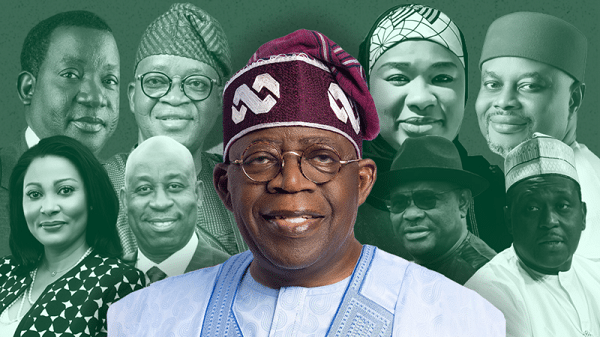
With 32.70 per cent headline inflation, 40.20 per cent food inflation, and bread inflation of 45 per cent, all caused by the removal of subsidies from petrol and electricity, and the government’s policy of allowing market forces to determine the value of the Naira, Nigerians are reeling under high cost of living.
The observation by Obi Alfred Achebe of Onitsha, that “The wellbeing of the people has declined more steeply in the last months,” leads to doubts about the “Renewed Hope” slogan of President Bola Tinubu’s government that is perceived as extravagant, whilst asking Nigerians to be patient and wait for its unfolding economic policies to mature.
It doesn’t look as if it will abate soon, Adebayo Adelabu, Minister of Power, who seems ready to hike electricity tariffs again, recently argued that the N225 per kilowatt hour of electricity that Discos charge Band A premium customers is lower than the N750 and N950 respective costs of running privately-owned petrol or diesel generators.
While noting that 129 million, or 56 per cent of Nigerians are trapped below poverty line, the World Bank revealed that real per capita Gross Domestic Product, which disregards the service industry component, is yet to recover from the pre-2016 economic depression under the government of Muhammadu Buhari.
This has led many to begin to doubt the government’s World Bank and International Monetary Fund-inspired neo-liberal economic policies that seem to have further impoverished poor Nigerians, practically eliminated the middle class, and is making the rich also cry.
Yet the World Bank, which is not letting up, recently pontificated that “previous domestic policy missteps (based mainly on its own advice) are compounding the shocks of rising inflation (that is) eroding the purchasing power of the people… and this policy is pushing many (citizens) into poverty.”
It zeroes in by asking Nigeria to stay the gruelling course, which Ibukun Omole thinks “is nothing more than a manifesto for exploitation… a blatant attempt to continue the cycle of exploitation… a tool of imperialism, promoting the same policies that have kept Nigeria under the thumb of… neocolonial agenda for decades.”
When Indermilt Gill, Senior Vice President of the World Bank, told the 30th Summit of Nigeria’s Economic Summit Group, in Abuja, Federal Capital Territory, that Nigerians may have to endure the harrowing economic conditions for another 10 to 15 years, attendees murmured but didn’t walk out on him because of Nigerian’s tradition of politeness to guests.
Governor Bala Muhammed of Bauchi State, who agrees with the World Bank that “purchasing power has dwindled,” also thinks that “these (World Bank-inspired) policies, usually handed down by arm-twisting compulsions, are not working.”
What seems to be trending now is the suggestion that because these neo-liberal policies do not seem to be helping the economy and the citizens of Nigeria, at least in the short term, it would be better to think up homegrown solutions to Nigeria’s economic problems.
Late Speaker of America’s House of Representatives, Tip O’Neill, is quoted to have quipped that, at the end of the day, “All politics is local.” He may have come to that conclusion after observing that it takes the locals in a community to know what is best for them.
This aphorism must apply to economics, a field of study that is derived from sociology, which is the study of the way of life of a people. Proof of this is in “The Wealth of Nations,” written by Adam Smith, who is regarded as the first scholar of economics.
In his Introduction to the Penguin Classics edition of “The Wealth of Nations,” Andrew Skinner observes: “Adam Smith was undoubtedly the remarkable product of a remarkable age and one whose writing clearly reflects the intellectual, social and economic conditions of the period.”
To drive the point home that Smith’s book was written for his people and his time, Skinner reiterated that “the general ‘philosophy,’ which it contained was so thoroughly in accord with the aspirations and circumstances of his age.”
In a Freudian slip of the Darwinist realities of the Industrial Revolution that birthed individualism, capitalism, and global trade, Smith averred that “How selfish soever man may be supposed, there are evidently some principle in his nature which interest him in the fortune of others, and render their happiness necessary to him, though he derives nothing from it, except the pleasures of seeing it.”
And, he let it slip that capitalism is for the advantage of Europe when he confessed that “Europe, by not leaving things at perfect liberty (the so-called Invisible Hand), occasions… inequities,” by “restraining the competition in some trades to a smaller number… increasing it in others beyond what it naturally would be… and… free circulation of labour (or expertise) and stocks (goods) both from employment to employment and from place to place!”
Policymakers, who think Bretton Woods institutions will advise policies to replicate the success of the Euro-American economy in Nigeria must be daydreaming. After advising elimination of subsidy, as global best practices that reflect market forces, they failed to suggest that Nigeria’s N70,000 monthly minimum wage, neither reflects the realities of the global marketplace, nor Section 16(2,d) of Nigeria’s Constitution, which suggests a “reasonable national minimum living wage… for all citizens.”
After Alex Sienart, World Bank’s lead economist in Nigeria, pointed out that the wage increase will directly affect the lives of only 4.1 per cent of Nigerians, he suggested that Nigeria needed more productive jobs to reduce poverty. But he neither explained “productive jobs,” nor suggested how to create them.
In admitting past wrong economic policies that the World Bank recommended for Nigeria, its former President, Jim Yong Kim, confessed, “I think the World Bank has to take responsibility for having emphasized hard infrastructure –roads, rails, energy– for a long time…
“There is still the bias that says we will invest in hard infrastructure, and then we grow rich, (and) we will have enough money to invest in health and education. (But) we are now saying that’s the wrong approach, that you’ve got to start investing in your people.”
Kim is a Korean-American physician, health expert, and anthropologist, whose Harvard University and Brown University Ivy League background shapes his decidedly “Pax American” worldview of America’s dominance of the world economy.
Despite his do-gooder posturing, his diagnoses and prescriptions still did not quite address the root cause of Nigeria’s economic woes, nor provide any solutions. They were mere diversions that stopped short of the way forward.
He should have advocated for the massive accumulation of capital and investments in the local production of manufacturing machinery, industrial spare parts, and raw materials—items that are currently imported, weakening Nigeria’s trade balance.
He should have pushed for the completion of Ajaokuta Steel Mill and helped to line up investors with managerial, technical, and financial competence to salvage Nigeria’s electricity sector, whose poor run has been described by Dr. Akinwumi Adesina, President of Africa Development Bank, as “killing Nigerian industries.”
He could have assembled consultants to accelerate the conversion of Nigeria’s commuter vehicles to Compressed Natural Gas and get banks of the metropolitan economies, that hold Nigeria’s foreign reserves in their vaults, to invest their low-interest funds into Nigeria’s agriculture— so that Nigeria will no longer import foodstuffs.
Nigerians need homegrown solutions to their economic woes.
EDITOR’S PICK
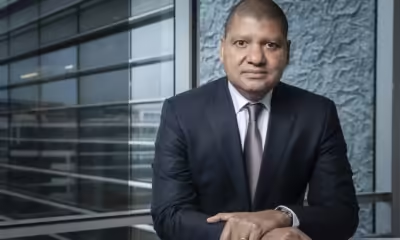

Ivory Coast: Ex-minister challenges ex-Credit Suisse boss Thiam for presidency
Jean-Louis Billon, the former commerce minister of Ivory Coast, announced on Friday that he would challenge party head and former...


Finance minister says reduced oil prices pressuring Angola
Angola’s finance minister has told journalists that falling oil prices put “lots of pressure” on the nation, predicting that prices...


IMF recommends exporting African countries make crucial changes. Here’s why
Abebe Aemro Selassie, director of the International Monetary Fund (IMF) Africa, has stated that countries in Sub-Saharan Africa that rely...


African Union must ensure Sudan civilians are protected, By Joyce Banda
The war in Sudan presents the world – and Africa – with a test. This far, we have scored miserably....


Nigeria considers US diaspora bond, seeks $1 billion monthly remittance
Nigeria is aiming for remittance inflows of $1 billion per month and is thinking of issuing a diaspora bond in...
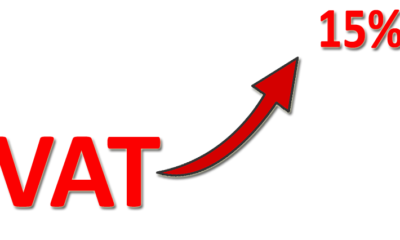

Nigeria to increase luxury VAT to 15%
The Nigerian government would levy a 15% Value Added Tax (VAT) on luxury products, according to the Minister of...
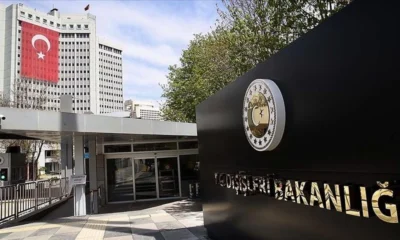

Turkey to pursue better African collaboration in Djibouti
According to sources in his ministry, Turkey’s foreign minister will visit Djibouti next week to attend a ministerial conference between...


Mali claims Barrick Gold violated deal as miner disputes
Mali accused Barrick Gold of not upholding promises made in a recent agreement but the Canadian miner refuted the accusations...
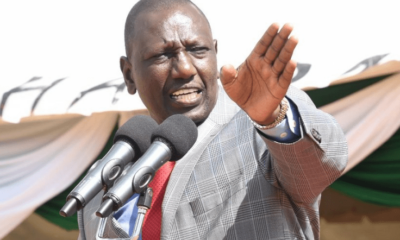

Video: Kenya’s Ruto targets inflation rate below 3%
In this video, Kenyan President, William Ruto, stressed the economic goals of his government and charged the public to believe...
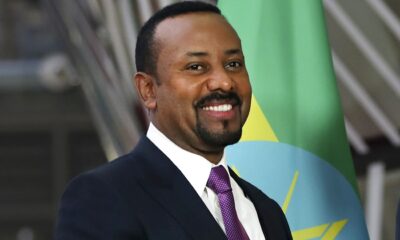

Ethiopian PM Abiy Ahmed meets Putin at BRICS, eyes stronger ties
Ethiopian Prime Minister Abiy Ahmed, who is representing a member country at his first BRIC summit, had a bilateral discussion...
Trending
-
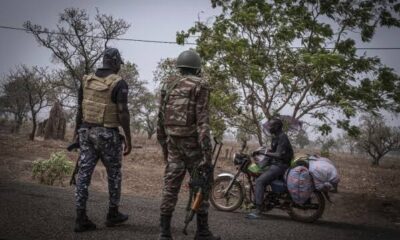
 Politics2 days ago
Politics2 days agoSources suggest Sahel jihadis finding safety in Ghana
-
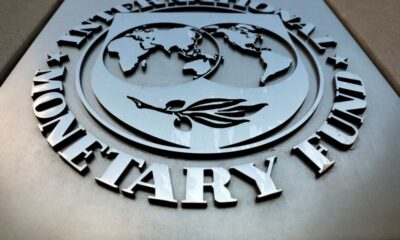
 VenturesNow2 days ago
VenturesNow2 days agoEgyptian loan package size is appropriate, says IMF
-

 Uncategorized2 days ago
Uncategorized2 days agoEthiopian PM Abiy Ahmed meets Putin at BRICS, eyes stronger ties
-

 VenturesNow23 hours ago
VenturesNow23 hours agoMali claims Barrick Gold violated deal as miner disputes


